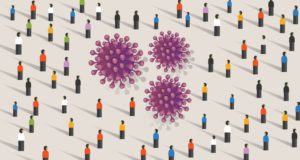 In many countries, restrictive laws already had been squeezing civil society before the Covid-19 crisis hit. The pandemic provides a convenient cover for governments to further tilt the balance of power in their favor. Foreboding though this picture is, the crisis is also catalyzing new forms of civic mobilization, note Carnegie analysts Saskia Brechenmacher, Thomas Carothers and Richard Youngs.
In many countries, restrictive laws already had been squeezing civil society before the Covid-19 crisis hit. The pandemic provides a convenient cover for governments to further tilt the balance of power in their favor. Foreboding though this picture is, the crisis is also catalyzing new forms of civic mobilization, note Carnegie analysts Saskia Brechenmacher, Thomas Carothers and Richard Youngs.
Pandemic-related activism naturally varies widely across contexts, but several common dimensions stand out, they write in a new report, Civil Society and the Coronavirus: Dynamism Despite Disruption:
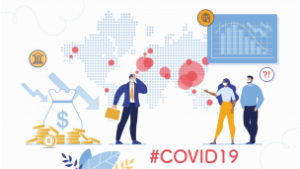
CSIS
NEW MUTUAL AID INITIATIVES: Across different cities and countries, citizens are coming together in new voluntary associations and mutual aid societies. They are raising money for emergency relief, collecting medical supplies and protective gear for overwhelmed hospitals, and delivering aid to those who lack other forms of social protection…..
REPURPOSING: Even organizations that typically work on human rights and democracy issues are repurposing to address the immediate public health crisis, they add, citing Brazil’s Coletivo Rapo Reto using its platform to denounce fake news, Kenya’s human rights NGO Muslims for Human Rights distributing protective masks and food supplies, and the Tunisian anticorruption NGO I-Watch collecting masks and other needed equipment….
 FIGHTING DISINFORMATION: In Brazil, where President Jair Bolsonaro continues to downplay the seriousness of the crisis, civil society groups have joined together in a new national coalition to spread awareness of the virus in the country’s poorest neighborhoods using the hashtag #coronanasperiferias (#coronaintheperipheries). In Senegal, the youth movement Y’en a Marre (Fed Up) has switched gears from advocating for transparent and democratic governance to disseminating songs that promote social distancing. Various Polish NGOs are focusing on debunking common conspiracy theories about the pandemic.
FIGHTING DISINFORMATION: In Brazil, where President Jair Bolsonaro continues to downplay the seriousness of the crisis, civil society groups have joined together in a new national coalition to spread awareness of the virus in the country’s poorest neighborhoods using the hashtag #coronanasperiferias (#coronaintheperipheries). In Senegal, the youth movement Y’en a Marre (Fed Up) has switched gears from advocating for transparent and democratic governance to disseminating songs that promote social distancing. Various Polish NGOs are focusing on debunking common conspiracy theories about the pandemic.
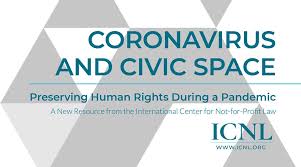 NEW ADVOCACY ROLES AND TACTICS: Civil society groups are going beyond relief provision to spearhead efforts to hold governments to account for ineffective or undemocratic crisis responses. …International organizations like the International Center for Not-for-Profit Law (right), Rights and Security International, and Amnesty International are tracking new emergency measures and pushing for democratic oversight. In Nigeria, the Action Group on Free Civic Space is documenting and analyzing coronavirus-related government measures as well as violence by public authorities. The group Zimbabwe Lawyers for Human Rights has launched a hotline to report human rights violations related to the crisis…. In Argentina, the civil society organization Directorio Legislativo has been mapping crisis-related regulations issued in Latin America.
NEW ADVOCACY ROLES AND TACTICS: Civil society groups are going beyond relief provision to spearhead efforts to hold governments to account for ineffective or undemocratic crisis responses. …International organizations like the International Center for Not-for-Profit Law (right), Rights and Security International, and Amnesty International are tracking new emergency measures and pushing for democratic oversight. In Nigeria, the Action Group on Free Civic Space is documenting and analyzing coronavirus-related government measures as well as violence by public authorities. The group Zimbabwe Lawyers for Human Rights has launched a hotline to report human rights violations related to the crisis…. In Argentina, the civil society organization Directorio Legislativo has been mapping crisis-related regulations issued in Latin America.
Though governments in MENA are taking advantage of the Covid19 pandemic to quell opposition, pro-democracy movements endure, the International Republican Institute’s Patricia J. Karam tweeted. @IRIglobal’s partners continue to defend democracy and help citizens hold governments accountable.
But several questions will be crucial in determining whether green shoots grow into trees—whether the pandemic ends up undercutting or rejuvenating civil society in many countries over time, the Carnegie analysts add:
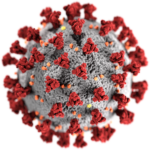 REGAINING LEGITIMACY: In recent years, civil society organizations in many places have faced questions and doubts about their legitimacy. …. A crucial question thus is whether civil society organizations’ effective crisis responses will allow them to counter the negative narratives about their lack of local accountability and authenticity….
REGAINING LEGITIMACY: In recent years, civil society organizations in many places have faced questions and doubts about their legitimacy. …. A crucial question thus is whether civil society organizations’ effective crisis responses will allow them to counter the negative narratives about their lack of local accountability and authenticity….
FROM LOCAL TO NATIONAL ACTION: Most of the emerging civic dynamism in the pandemic context is local as communities come together to cope with the immediate crisis. This pattern reinforces a shift from professionalized civil society organizations toward localized, informal civic activism, a trend that was already underway in many places….
FROM EMERGENCY RESPONSES TO POLITICAL REFORM: Though many civil society organizations have shifted toward public health activism and humanitarian aid delivery, this may be only a short-term adaptation that will end once the pandemic passes. However, many civic actors and their supporters note that the current crisis—and the inequities it brings to the fore—may present a unique opportunity to advance more ambitious reform agendas….
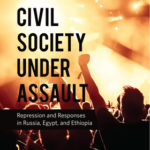
Carnegie
The pandemic is a critical moment to push back against the anti–civil society narrative that has gained so much ground around the world in the past 10 years, the report concludes. RTWT
The Hoover Institution presents an online virtual briefing series on pressing policy issues, including health care, the economy, democratic governance, and national security. Briefings will include thoughtful and informed analysis from top scholars, including Stanford CDDRL’s Larry Diamond, the founding coeditor of the Journal of Democracy and the co-chair of the Research Council of the International Forum for Democratic Studies of the National Endowment for Democracy (NED).
LARRY DIAMOND: COVID-19 and Democracy Around the World.
Thursday, April 30 at 11AM PT/ 2PM ET To watch the conversation live, sign up here:








